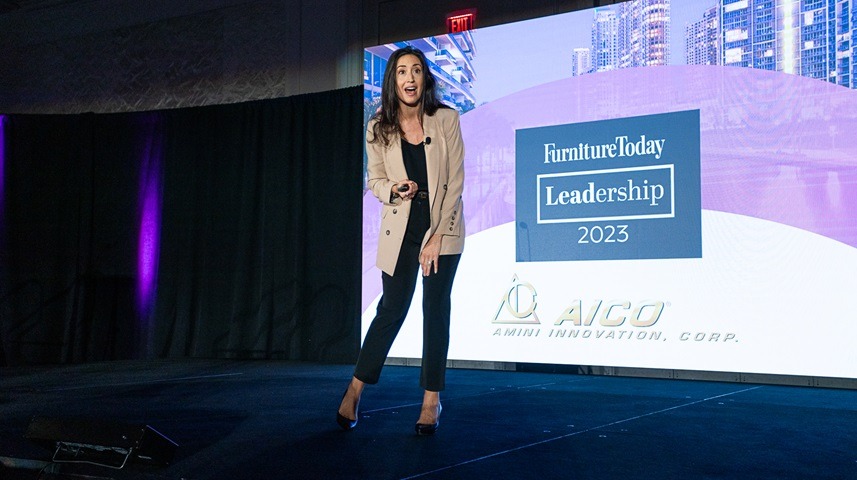MIAMI, Fla. — The pace and nature of change is occurring so quickly and so broadly that it will require thinking about the physical, digital and virtual worlds in entirely new ways. That was one of the challenges futurist and keynote speaker Erica Orange put before attendees of Furniture Today’s recent Leadership Conference.
Orange, who is executive vice president and chief operating officer for Future Hunters, has used her expertise at identifying shifting economic, demographic, technological and sociological shifts for major corporations including Coca-Cola, Amazon, Meta and Clorox, to name a few. Her insights have been featured in Forbes, Time, Bloomberg and The Economist, among others.
Speaking before the conference’s furniture industry audience, she challenged many of the assumptions upon which both retailers and manufacturers have based their marketing efforts. Most notably, Orange pointed out that traditional life cycles and the behaviors associated with them are undergoing a major transformation.
For example, the traditional linear view of people’s life trajectory — growing up, getting an education, a job, a home, raising children, etc. — today is far less linear. The emergence of multi-generational households, whether through children moving in with parents or parents moving in with their children, is fundamentally changing traditional living situations, home designs and usage patterns.
As a result, traditional one-size-fits-all approaches to marketing are less effective, and the need for what Orange called, “dynamically customizable,” strategies will become more prevalent.
She also noted that consumers’ relationship with technology, particularly for Gen Z consumers requires a more innovative approach to engagement. Orange has coined the term “Cybrids” (cyber hybrids) to describe Gen Z, reflecting their “symbiotic relationship with technology.”
Their use of technology across all facets of daily living has blurred the lines between the physical, digital and virtual worlds and is impacting the way this generation interacts with each other and with the world around them.
“We have no idea how this is going to play out,” Orange said. “We have to rethink our strategies to engage this generation.”
Unlike their immediate generational predecessors, Gen Z is more wary of social media, with 47% saying they do not trust social media platforms. They are, however, brand advocates with 85% indicating that trussing a brand is critical to their purchase decisions.
This generation, which places a high value on trust and is purposeful in their decision making, are looking in non-traditional places for information. The role of social media “influencers” play a much more influential role for Gen Z consumers than for their predecessors and a much higher percentage view content creation as a desirable entrepreneurial path to success.
Orange estimated the market size of the emerging “Creator Economy” at $105 billion, a number that is expected to grow in the coming years.
For those looking to keep pace with the rapid pace of change and the generations that will shape it, Orange advised attendees to get a Gen Z mentor, to stay current and curious as the pace of change continues to accelerate.
She also offered the counter-intuitive advice to ask, “what can you forget?” Strict adherence to past practice and belief sets, she noted, could prove an obstacle to keep pace with a world increasingly characterized by rapid change.
